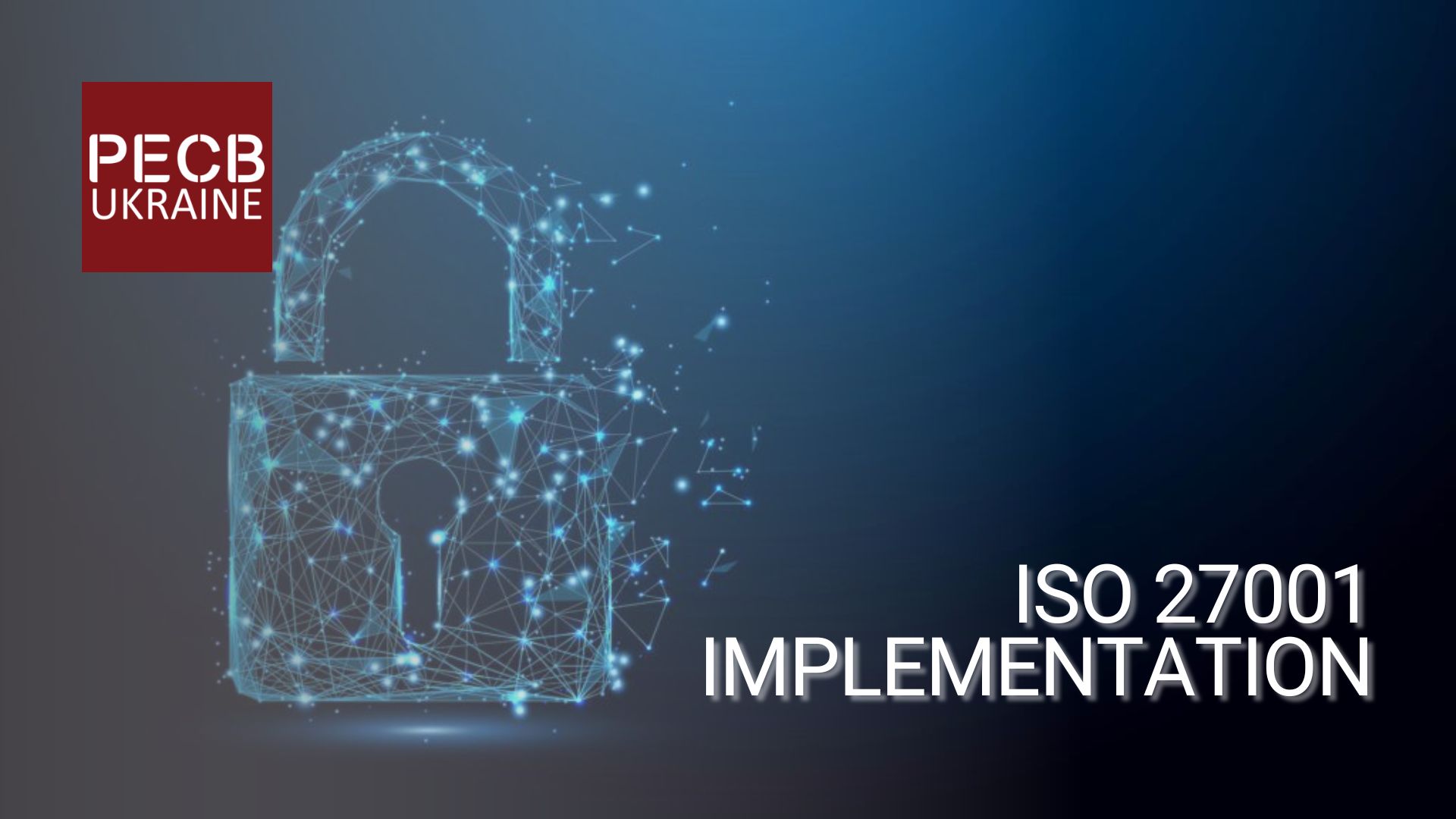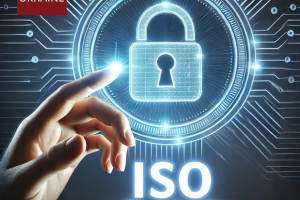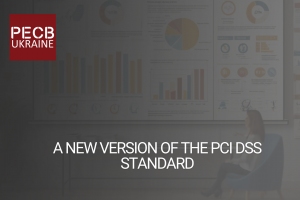
What is ISO 27001 Certification & How to Get Certified (2025 Guide) | PECB Ukraine
What is ISO 27001 Certification and How to Get Certified?
In today’s challenging digital landscape, robust information security and effective cyber security practices are non-negotiable necessities for businesses. Organizations globally face escalating cyber security threats, sophisticated data breaches, and complex regulatory compliance demands. This makes internationally recognized frameworks like the ISO 27001 standard crucial for implementing strong data protection strategies. This comprehensive guide explains what ISO 27001 certification is, its core benefits, and the essential steps for achieving this vital information security certification in 2025.
Understanding the ISO 27001 Standard
ISO 27001 is the premier global standard defining the requirements for an Information Security Management System (ISMS). Developed by the International Organization for Standardization (ISO), this 1 framework guides organizations in establishing, implementing, maintaining, and continually improving their information security management. 2 An ISMS provides a systematic approach—encompassing policies, procedures, technical controls, and risk management processes—to manage and protect sensitive organizational information assets. The primary goal of the ISO 27001 standard is to help businesses manage information security risks effectively, ensuring the confidentiality, integrity, and availability (CIA triad) of data through a structured, risk-based approach. Understanding the key ISO 27001 requirements is the first step towards protecting critical information assets through effective risk management.
Whether operating as a lean tech startup or a large multinational corporation, implementing ISO 27001 enables organizations to proactively identify security vulnerabilities and implement tailored security controls (often leveraging the extensive list in ISO 27001 Annex A) to mitigate potential impacts and strengthen their cyber security posture.
Why is ISO 27001 Certification Important for Your Business?
Achieving ISO 27001 certification is far more than a procedural formality; it offers tangible proof of your organization’s serious commitment to information security best practices. Pursuing this certification provides significant advantages:
- Enhanced Risk Management: ISO 27001 establishes a proactive risk management framework vital for identifying, assessing, treating, and continuously monitoring information security risks, thereby mitigating costly data breaches and cyber risks.
- Boost in Reputation and Trust: Displaying a valid ISO 27001 certificate significantly enhances credibility, reassuring clients, partners, and stakeholders that your data handling practices align with the highest international security standards. It demonstrates a strong security commitment.
- Regulatory Compliance: The ISO 27001 framework helps streamline efforts to comply with major data privacy laws and regulations like GDPR, HIPAA, and NIS2, reducing the risk of substantial fines and legal repercussions tied to compliance failures.
- Improved Operational Efficiency & Resilience: A well-implemented ISMS based on ISO 27001 improves process clarity, reduces operational redundancies, enhances incident response capabilities, and fosters overall business resilience against security threats.
What is ISO 27701 and How is it Different from ISO 27001?
While ISO 27001 provides the foundation for information security management (ISMS), ISO 27701 serves as a specific extension focusing on data privacy. It outlines requirements and offers guidance for establishing and managing a Privacy Information Management System (PIMS). Effectively, ISO 27701 enhances ISO 27001 with additional controls and objectives dedicated to the secure and compliant processing of personally identifiable information (PII), thereby enhancing data privacy management.
Key Differences:
| Feature | ISO 27001 | ISO 27701 |
|---|---|---|
| Focus | Broad Information security management (ISMS) | Specific Privacy & data protection management (PIMS) |
| Audience | Any business managing sensitive information | Primarily businesses processing personal data (PII) |
| Compliance Focus | General security, GDPR, NIS2 support, overall cyber security | Specific support for GDPR, CCPA, LGPD, data privacy regulations |
| Certification Path | Standalone standard, prerequisite for ISO 27701 | Extension standard; Requires existing ISO 27001 certification |
ISO 27701 certification is especially valuable for organizations needing to demonstrate robust GDPR compliance and adherence to other global data privacy standards.
Who Should Get ISO 27001 Certified?
ISO 27001 certification provides significant value to any organization handling confidential, sensitive, proprietary, or regulated information. This scope commonly includes:
- IT service providers, Managed Service Providers (MSPs), cloud security providers, and SaaS platforms
- Financial institutions, banks, insurance companies, and fintech innovators
- Healthcare organizations, hospitals, clinics, and biotech research firms
- Government agencies and public sector service providers
- E-commerce platforms and online digital marketplaces
- Legal firms, consulting agencies, and business process outsourcing (BPO) services
If your business operates within these sectors or depends heavily on secure data management, pursuing ISO 27001 compliance is a strategic imperative for safeguarding operations and enabling growth.
Key Benefits of ISO 27001 Implementation
Implementing the ISO 27001 standard delivers benefits far beyond basic risk mitigation; it actively cultivates a stronger overall cyber security posture and enhances competitive standing. Major ISO 27001 benefits encompass:
- Strengthened Data Protection: Implement comprehensive information security controls and documented procedures designed to safeguard data against breaches, leaks, ransomware attacks, and unauthorized access attempts.
- Reduced Likelihood & Impact of Cyber Attacks: Minimize exposure to vulnerabilities through continuous risk assessments, proactive threat mitigation, and adaptive policy enhancements, leading to reduced security incident impact.
- Increased Security Awareness Culture: The standard mandates effective security awareness training programs and internal communications, embedding a security-conscious mindset across the entire organization.
- Boosted Competitive Advantage & Market Access: ISO 27001 certified companies frequently gain a distinct market advantage, particularly when bidding for contracts, engaging enterprise clients, or satisfying supply chain security requirements.
How to Get ISO 27001 Certified: Step-by-Step
The journey to achieving accredited ISO 27001 certification follows a structured process:
Step 1: Gap Analysis
Conduct a thorough assessment comparing your existing information security practices, policies, and technical controls against the detailed ISO 27001 requirements. This critical step identifies gaps needing remediation for compliance.
Step 2: ISMS Implementation & Risk Treatment
Develop, document, and integrate all necessary components of your Information Security Management System (ISMS). This involves defining the ISMS scope, establishing security policies, conducting formal risk assessments and developing risk treatment plans, selecting appropriate information security controls (often using Annex A for guidance), and assigning clear roles and responsibilities.
Step 3: Internal Audit
Perform a comprehensive internal audit to verify the effectiveness, efficiency, and compliance of your implemented ISMS against the ISO 27001 standard. This identifies non-conformities needing correction before the external certification audit.
Step 4: Certification Audit
Engage an accredited, independent third-party certification body to perform the formal ISO 27001 audit. This usually occurs in two stages: Stage 1 (readiness review, documentation check) and Stage 2 (in-depth assessment of ISMS implementation, operation, and effectiveness). Successful completion leads to the award of the ISO 27001 certificate.
Step 5: Continual Improvement & Surveillance Audits
Achieving ISO 27001 certification marks the beginning, not the end. Maintaining the certification requires ongoing commitment to continual improvement, demonstrated through regular internal audits, management reviews, updated risk assessments, and periodic surveillance audits conducted by the certification body to ensure sustained ISMS effectiveness and compliance.
Can You Display the ISO 27001 or ISO 27701 Logo?
Yes. Upon successful completion of the certification process and issuance of your certificate by an accredited body, your organization is typically authorized to display the relevant certification marks (logos) associated with ISO 27001 or ISO 27701. Common placements include:
- Company website footers, dedicated compliance pages, and email signatures
- Official company documents, letterheads, and presentations
- Marketing materials, brochures, case studies, and social media profiles
These logos serve as widely recognized symbols communicating trust, reliability, a strong commitment to information security or data privacy, and adherence to rigorous global standards.
Final Thoughts: Investing in Information Security Management
Obtaining ISO 27001 certification is a strategic investment in your organization’s resilience and reputation. It transcends mere compliance, demonstrating a proactive dedication to world-class information security management, safeguarding client data, mitigating cyber security risks, and building a foundation of digital trust critical for success in 2025 and beyond.
Ready to elevate your information security standards and build unwavering customer confidence with ISO 27001 compliance? Explore the expert guidance and training solutions offered by PECB Ukraine.
📞 Contact us today to begin your journey towards ISO 27001 or ISO 27701 certification!


